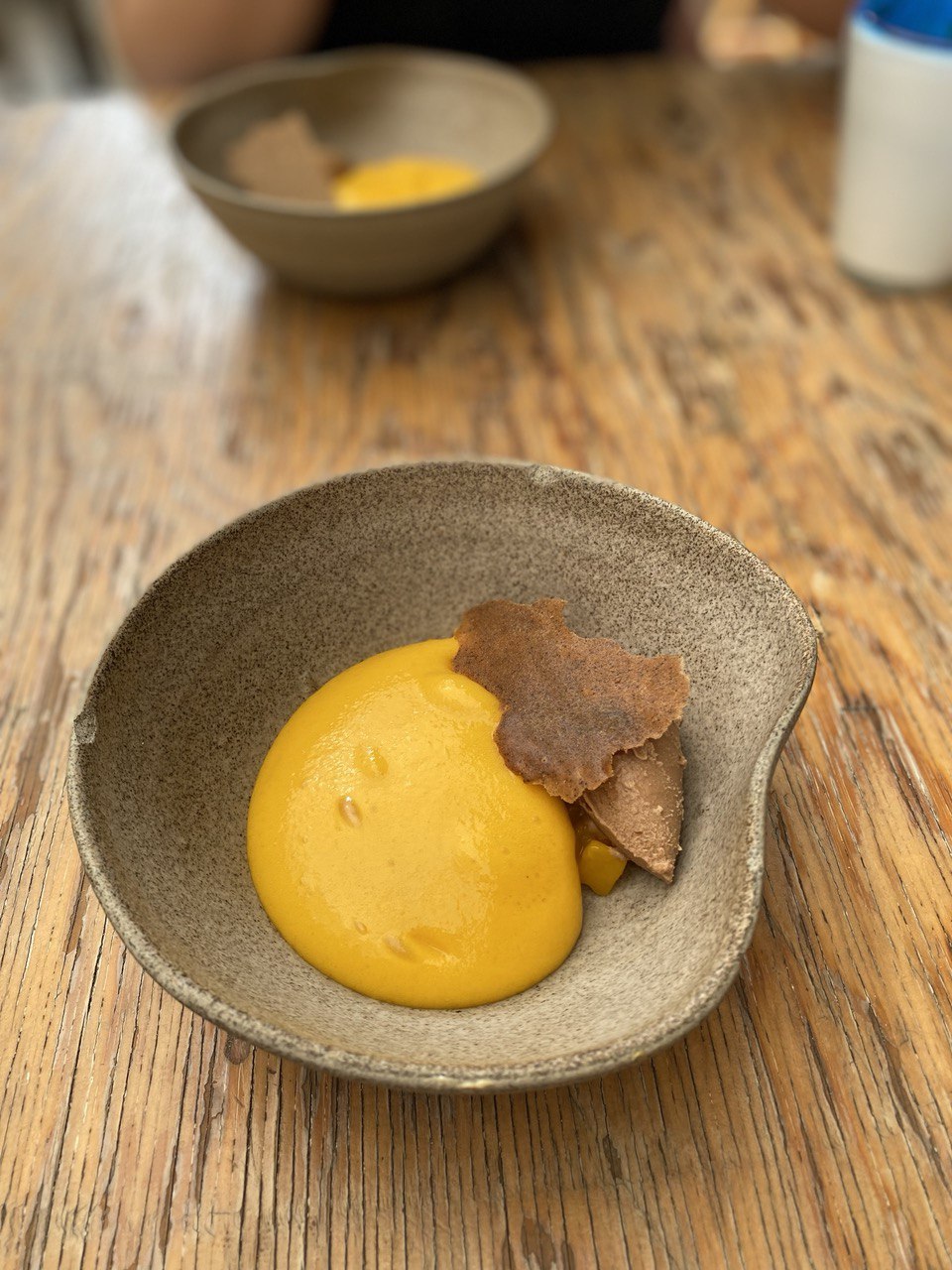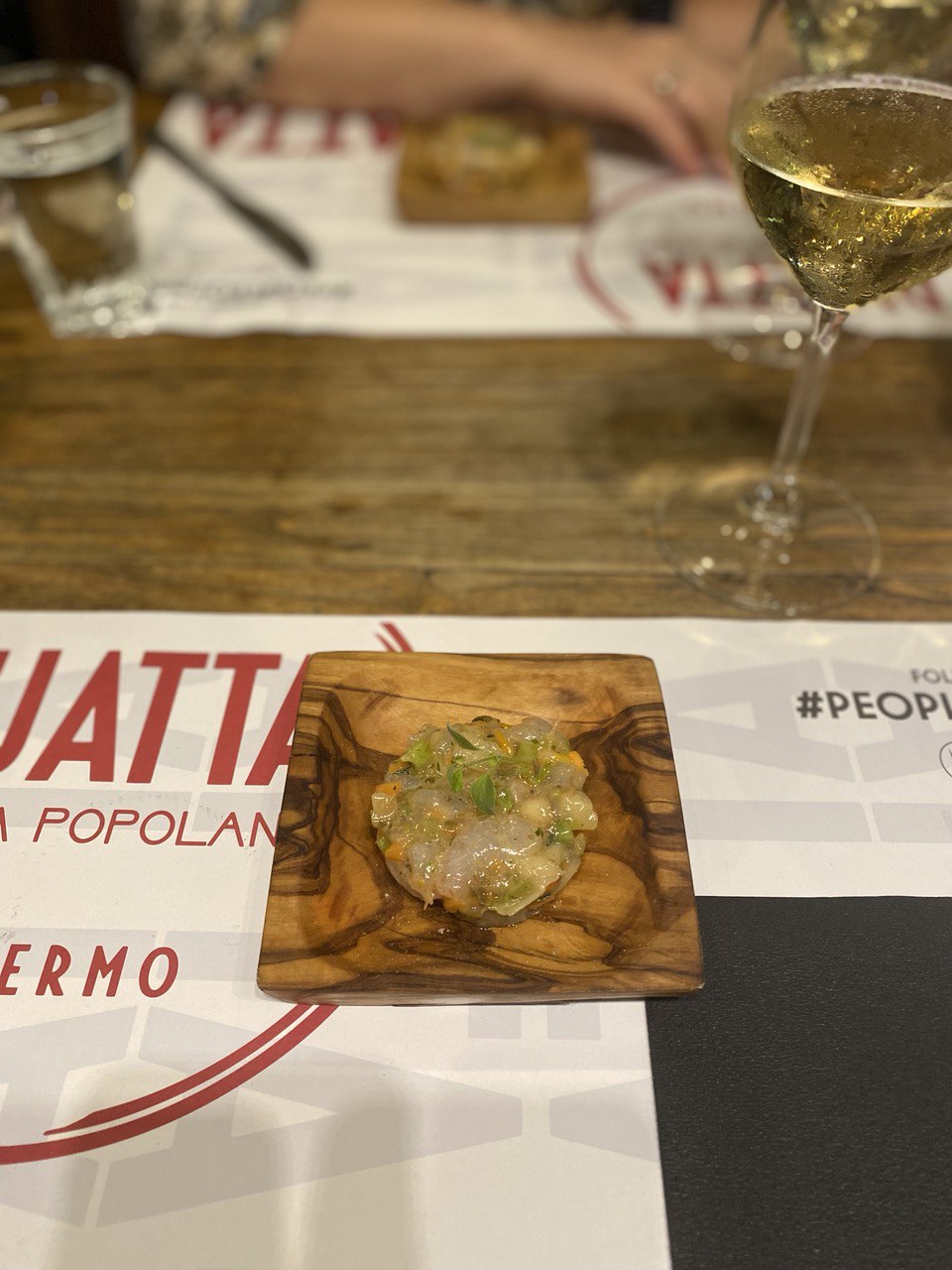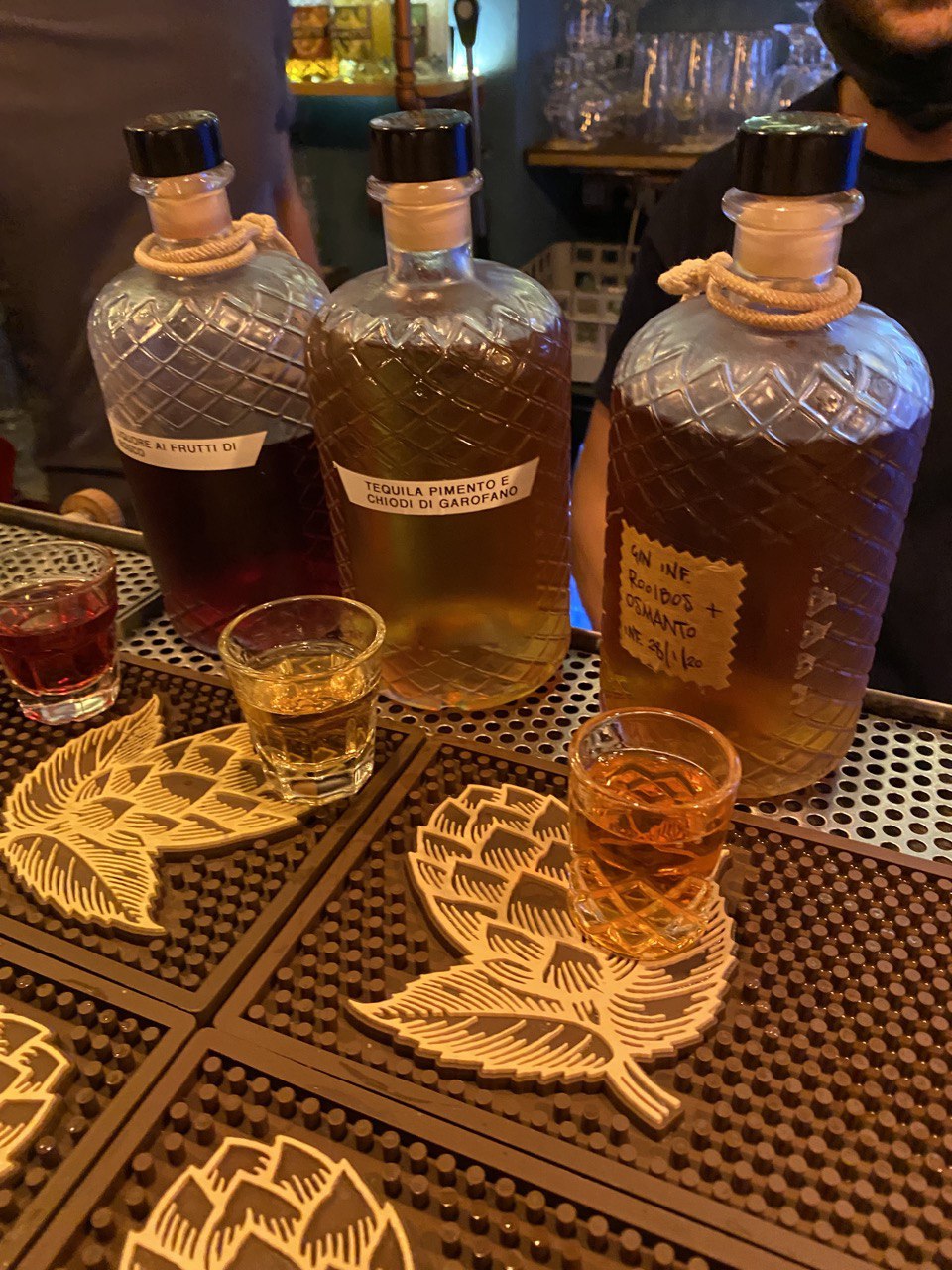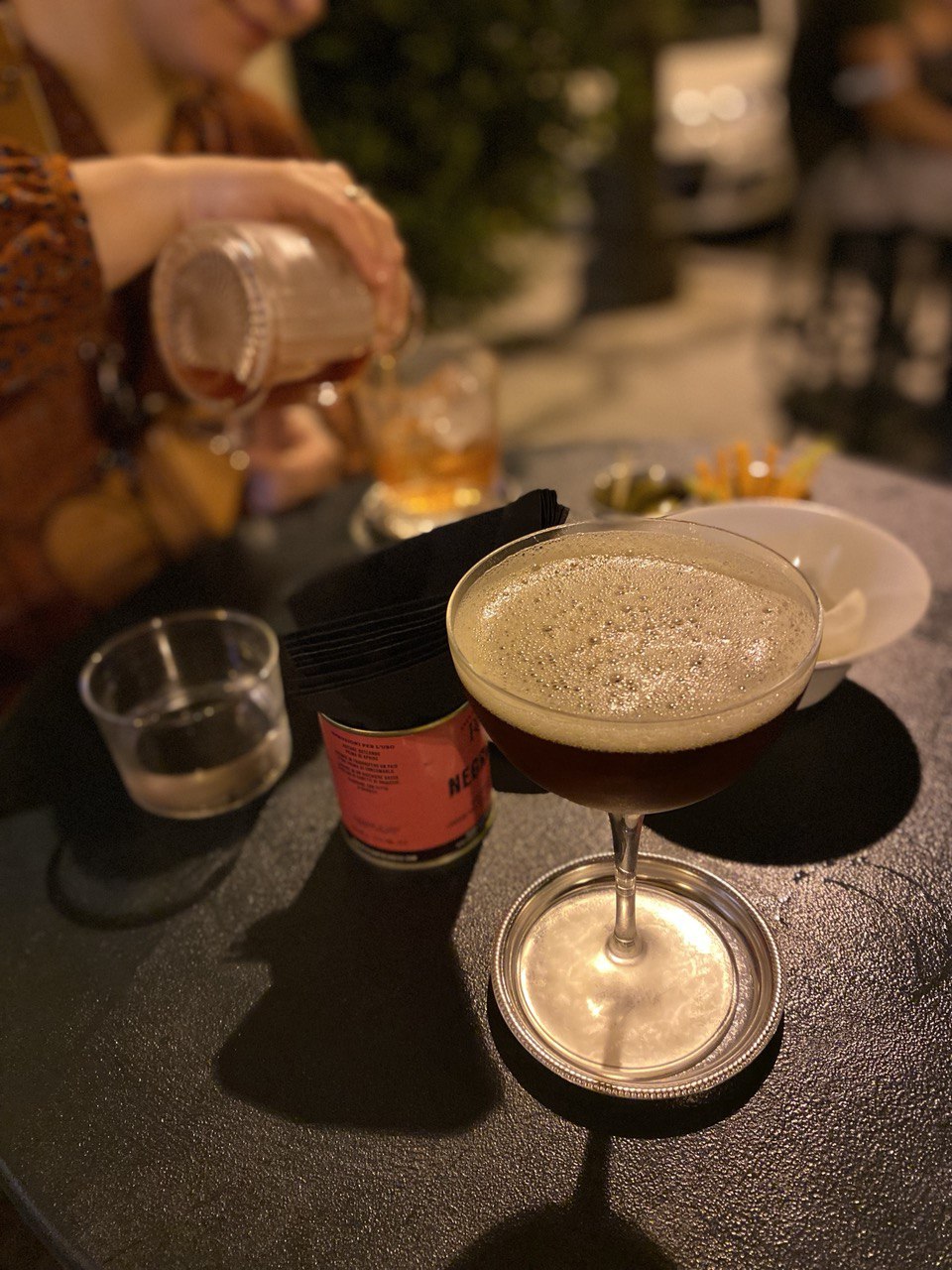|
As you could guess, it was quite a refreshing trip.
Looking forward to many more!
Things I enjoyed reading
It's hard to believe that this week is that kind of the anniversary.
Ten years ago I wasn't involved in iOS development as much as I am today, and yet I was still quite fascinated by Apple and its main character. The day the news broke was a grim one indeed.
Ideas are fragile. If they were resolved, they would not be ideas, they would be products. It takes determined effort not to be consumed by the problems of a new idea. Problems are easy to articulate and understand, and they take the oxygen. Steve focused on the actual ideas, however partial and unlikely.
I had thought that by now there would be reassuring comfort in the memory of my best friend and creative partner, and of his extraordinary vision.
Jony Ive never said much but it wasn't a secret how close of a friend he was to Steve Jobs, hence the exceptional value of his thoughts here.
Lots of interesting facts about being a Michelin Inspector. I always thought of it as a dream job, but it actually is not as simple as you might think.
Yes, you get to eat lots of food at the company's expense, all while travelling the world, but apparently travelling so often is very exhausting, while the majority of restaurants you visit are quite far from Michelin standards.
Two stars is a step up, you are looking for more complexity in a dish. You’re looking for sometimes multiple ingredients, or techniques that are very difficult to do: make something that is incredibly complex, but that looks incredibly simple. Taste and balance. I look at the difference between the sauce of a one-star dish and the sauce of a two star dish. Nothing is ever written in stone.
When you or I go for dinner, the difference between a one-star dish and two-star dish, when you look at it, you can look at the plate and say wow! At one star you don’t necessarily say that.
Secondly, saucewise, when you taste the sauce at a one star, it should be deep, clearly identified taste, good flavour, umami. In a two star dish, it should have multilayers, you should be tasting different components, there should be an aftertaste, which was not there in perhaps the one star dish.
The insights on what defines a restaurants are quite eye-opening too. I always thought the difference is in techniques or service, but seems like it's not as important as complexity of flavours.
There is nothing surprising in alcohol being bad for health, but somehow no one really researched if there is safe threshold.
So we don’t know if moderate drinking is bad for you. It almost certainly causes harms like cancer, but it might help heart disease enough to offset those harms. In the US, around 20% of adults drink 1-2 drinks per day. Even if the effects are modest, the collective impact is huge. Second perhaps to caffeine, alcohol is humanity’s favorite drug. We need to know what it does.
At the same time, here in the UK there are units that define the amount of alcohol, and there is a recommended maximum allowance of those. The didn't pick it randomly, did they?
I am not a big fan of plants (I mostly prefer to eat them, not to care for them), but I always thought of watering as the most complex part of growing anything. I don't really buy all this guidance about humidity or shadow, but underwatered plants are a nightmare.
At some point I even made an automated watering system for my pepper plants, but its maintanance in fact proved to be more complicated then literally any other option.
Let’s begin with the assumptions many people make. We are neither botanists nor soil scientists, so when we’re confronted with the simple task of watering our plants we use common sense. As humans we get thirsty and being thirsty is no fun at all. Plus we know that, whether thirsty or not, having an extra drink of clean water never hurt anyone. Applied to plants, we thus arrive at the following, better-safe-than-sorry approach: when in doubt, pour it out.
Seems like getting back to automated science might still be a good idea.
What a life: spend a few months sampling a few dozens of mustards.
I don't really remember myself eating much mustard in the childhood. My father would usually keep a tub (aking to the toothpaste tub) in the fridge, but it was extremelly harsh mustard, and I started to acquire the taste for it only at the university, using it as a spread for some sandwiches.
I noticed while looking through my stock that I’d even forsaken the spicy Russian mustard I remember seeing around my house growing up. So I decided to go on a quest, one that would take me nearly an entire summer and alienate me from my wife and loved ones for a period of the day because, well, mustard smells. I wanted to not only try every mustard on Beard’s list, but also build my own similar one.
Would be lots of fun to try and sample at least the best ones mentioned by the author. I do wonder how they would perform against my childhood nemesis.
These days there are secret societies for pretty much anything, although lightning strikes sounds oddly specific.
Many couples have something — a first date, a first kiss, a first holiday — that marks a watershed moment in their relationship. For Shana and Don, it was their first thunderstorm. Outside, on the front porch, Shana watched as dark rumbling clouds approached. Her joints started to ache and her chest tightened. Don took her hand and led her inside without saying a word.
However comparing to many, this one actually does something good, and provides people with support, which is why secret societies were invented in the first place (these days that's pretty much forgotten).
I won't lie: the last two years made me think about moving to the middle of nowhere and this idea is still not burried. Apparently I am not alone:
At its heart, cottagecore hinges heavily on modern escapist fantasies, and posts are full of foraged mushrooms, long billowy dresses, gingham tablecloths, baskets of wildflowers, sourdough bread and mossy terrariums. There are babbling brooks surrounded by woodland, snails, beeswax candle-making, delicate doilies, farm animals, forest bathing and rustic simplicity.
The article also mentions that people moving to rural areas enjoy sewing and cooking, so I feel like our household would fit in well.
Despite quite a few books read on the topic, the mechanics of smell continue to fascinate me.
Petrichor emanates from millions of raindrops falling all at once, giving this smell a stereoscopic quality. In 2015, a team of MIT scientists determined how petrichor reaches our noses. Using high-speed cameras, they observed that when a raindrop hits a porous surface, it traps tiny air bubbles at the point of contact. In a slow-motion video, you can see a raindrop hitting a surface. The drop briefly assumes a doughnut shape, then flattens into a disk. Infinitesimal droplets rise from the disk like fireflies buzzing over a lake. Those droplets lift petrichor from the soil, infusing the air.
I approach it from a more pragmatic perspective though. Smells give us a powerful tool when it comes to food and drinks: cocktails are often defined by how they smell, not what they contain.
So being able to manipulate smells opens up a world full of wonderful possibilities.
An interesting story on the edge between development and product management.
I conducted a small lab study to again see how people were conducting code reviews. But I also asked them to do a code review using my tool. I gave them almost no instructions on how to use it. I watched step by step.
I emailed the few developers that had originally used my tool to try to start a conversation about their thoughts on the tool.
The feedback loop in building process is probably the single most overlooked issue for many of us, and talking to users is the only way to understand more about the problem we as developers (or product owners) face.
Otherwise it is akin to walking in a night forest with a constantly dying off candle.
A cool mix of linguistics, machine learning, and one's hobbies led to a bot capable of solving crosswords (without googling obviously).
I never enjoyed solving them myself, but always thought these kinds of tasks are nearly impossible to solve with the modern hardware.
The crossword solver is a closed system—it can’t just Google the answers. As a result, there are gaps in its knowledge base. In this regard, too, the program mimics our own imperfect mental capacities, even if its storage and processing speed dwarfs puny human brains. The clue “Poet who wrote ‘Jellicle Cats are merry and bright’” (5 letters) might be obvious to fans of T.S. Eliot, but Dr. Fill initially liked KEATS and YEATS ahead of ELIOT as the poet in question. (Since the Berkeley team’s clue-solving system employs a “black box” approach rather than something more interpretable after the fact, it can be difficult to say why it favors one poet or another.)
Seems like I was wrong.
Things I didn't know last Tuesday
I didn't watch much of it in my childhood, and probably that was a good idea:
According to a 2011 study from the University of Virginia, SpongeBob is messing with the memory retention of children, impairing their “readiness for learning.” Findings show that allowing preschoolers to watch the series causes short-term disruptions in mental function and attention span due to frequent camera cut scenes.
How did they come up with the study's topic? Did people come complaining about those "side-effects"?
So many questions.
A nice part of London's architecture:
The “Cornhill Devils,” according to legend, came as a rather unholy finishing touch to the completed building. A parting gesture of sorts from the architect to the clergyman next door.
| 




